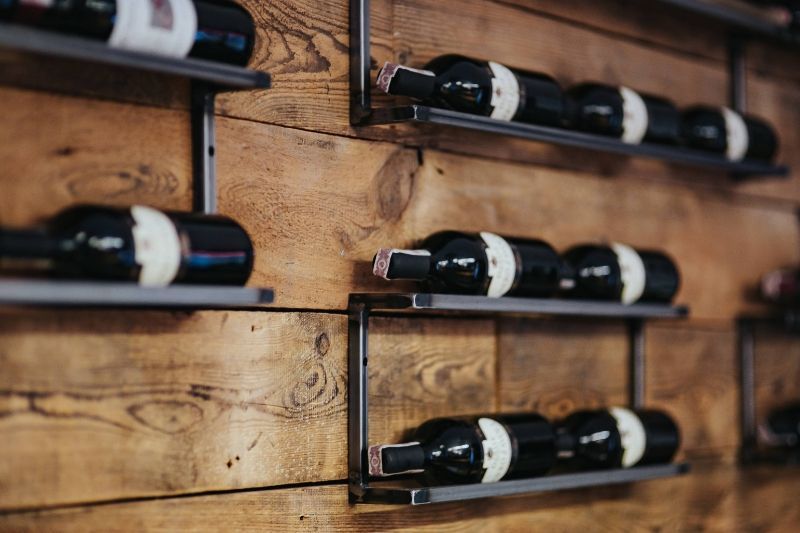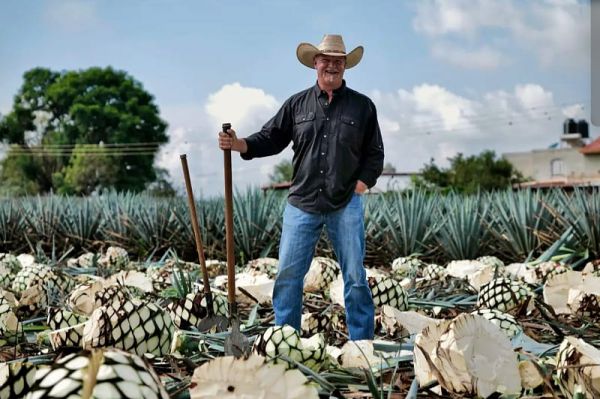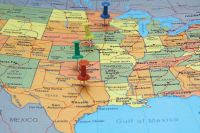Log in to your account
Lost password?Data Insights
The Key To Becoming A US Wine Importer
Want to become a US wine importer? This is what you should know.
20/08/2019

Many wine producers have an eye on the US market. The land of the free, of unlimited opportunities for entrepreneurs is as attractive as ever. There are surely a lot of rules to follow, a lot of steps on the way, but the market offers sheer endless ways to succeed. Let’s take a look at what it takes and what one needs to know in order to become a US wine importer.
The Three Tier Law
In order to conquer the US wine market, it is important to understand that the alcoholic beverage industry in the Unites States follows a quite rigid structure: the key players in the industry make up a three-tier system which is the law in most states. The three-tier system is: Winery/Manufacturer > Wholesaler/Distributor > Retailer.
The top-tier of this system is the winery or manufacturer that is producing the wine. Foreign manufacturers often obtain an agent who represents and acts on the winery’s behalf within the United States. This agent is the importer who is licensed and authorized to bring wine into the United States from the manufacturer’s foreign country in the course of trade. The importer therefore may be considered to stand in place of the winery when referring to the top-tier of the three tier system.
The middle-tier is represented by the wholesaler or distributor. This person or business is licensed and authorized to purchase wine from the importer for resale. The wholesaler or distributor transports the wine purchased from the manufacturer or importer and resells it to the bottom-tier - the retailer, which can be a restaurant, liquor store, or bar.
Those desiring to import wine into the United States must first distinguish what they really want to be: just an importer or an agent of the winery, or both an importer and a wholesaler/distributor, so they may actually sell the wine to retailers.
Many importers are actually both: they act as the wholesaler/distributor as well as the importer for foreign wineries.
How to become just a US Wine Importer
An importer has the following general responsibilities:
1) Communication with the foreign winery, receipt and forward of purchase orders.
2) Arrangement for delivery by ship or air from the foreign winery either directly or through a freight forwarder,
3) Customs clearance once the wine arrives in the United States
4) Arrangement for the transport from customs to a bonded warehouse near the port of entry,
5) Storage of the wine at the warehouse,
6) Selection of a wholesaler for distribution to retail outlets and assistance with the promotion and sale of the brands.
The importer, who acts as the foreign winery’s agent in the U.S. has a great deal of control over the brand and how it will be distributed within the U.S.
In order to become a US wine importer, a person needs to obtain a license on the federal level, but generally does not require any license on the state level. The Federal Alcohol Administration Act (FAA) requires those wishing to import alcoholic beverages into the country to obtain an Importer’s Basic Permit from the Federal Alcohol and Tobacco Tax and Trade Bureau (“TTB”).
Application Process to become a US wine Importer
To apply for the Importer’s Basic Permit, a person must attach a Letter of Intent with a foreign winery to his or her application. The letter, which must be signed by the foreign supplier and written on its letterhead, should be a statement by the supplier conveying its intent to supply the person with its wine. While this Letter of Intent is required by the TTB for the Importer’s Basic Permit to even be processed.
The TTB also requires a Certificate of Label Approval (COLA) for each unique product or each brand of wine being imported. Since each product must have its label approved before entering interstate commerce, application for COLAS should be done as soon as the Importer’s Basic Permit is obtained and the labels are ready.
Finally, a certification is required to show that the practices and procedures used to produce the wine in the manufacturer’s country, comply with the requirements of the Miscellaneous Trade and Technical Corrections Act of 2004. This Country of Origin Certification consists of a governmental statement regarding the results of lab analyses conducted on the wine and stating proper cellar treatment was employed. Many international trade agreements, however, have exempted most countries from this requirement.
What if an importer wants to resell wine too?
The importer’s processed and approved Basic Permit allows import of wine, but it does not allow wholesale of wine. If an existing importer later wishes to become a wholesaler/distributor as well, then an application for the appropriate wholesaler’s licenses on the Federal and State level is required.
What also needs to be provided is a licensed warehouse where the wine must come to rest after entry into the state the importer wants to do business in, as well as licensed trucks to transport the wine to retailers within bespoke state. It must be remembered that the legislation that repealed Prohibition on the federal level was carefully drawn to give states the maximum amount of power to regulate alcohol within their boundaries.
An applicant for an Importer’s Basic Permit who also wishes to apply as a wholesaler/distributor at the outset of his or her business can combine supplementary application documents, indicating intent to apply to be both an importer and wholesaler/distributor. This is an option only for those persons who will be importing to, and distributing from, the same location, whether that be a home office if distributing on a small scale, or a large warehouse if planning to distribute nationally.
Once in possession of a federal and a state license to both import and distribute wine to retailers, the person desiring to import wine in its classic sense is now ready to conquer one state at a time, or entire regions at a time depending upon the demand for the wine brand.
Becoming a US wine importer and reseller is a sophisticated process, therefore it’s key to follow rules and regulations down to a T.
















